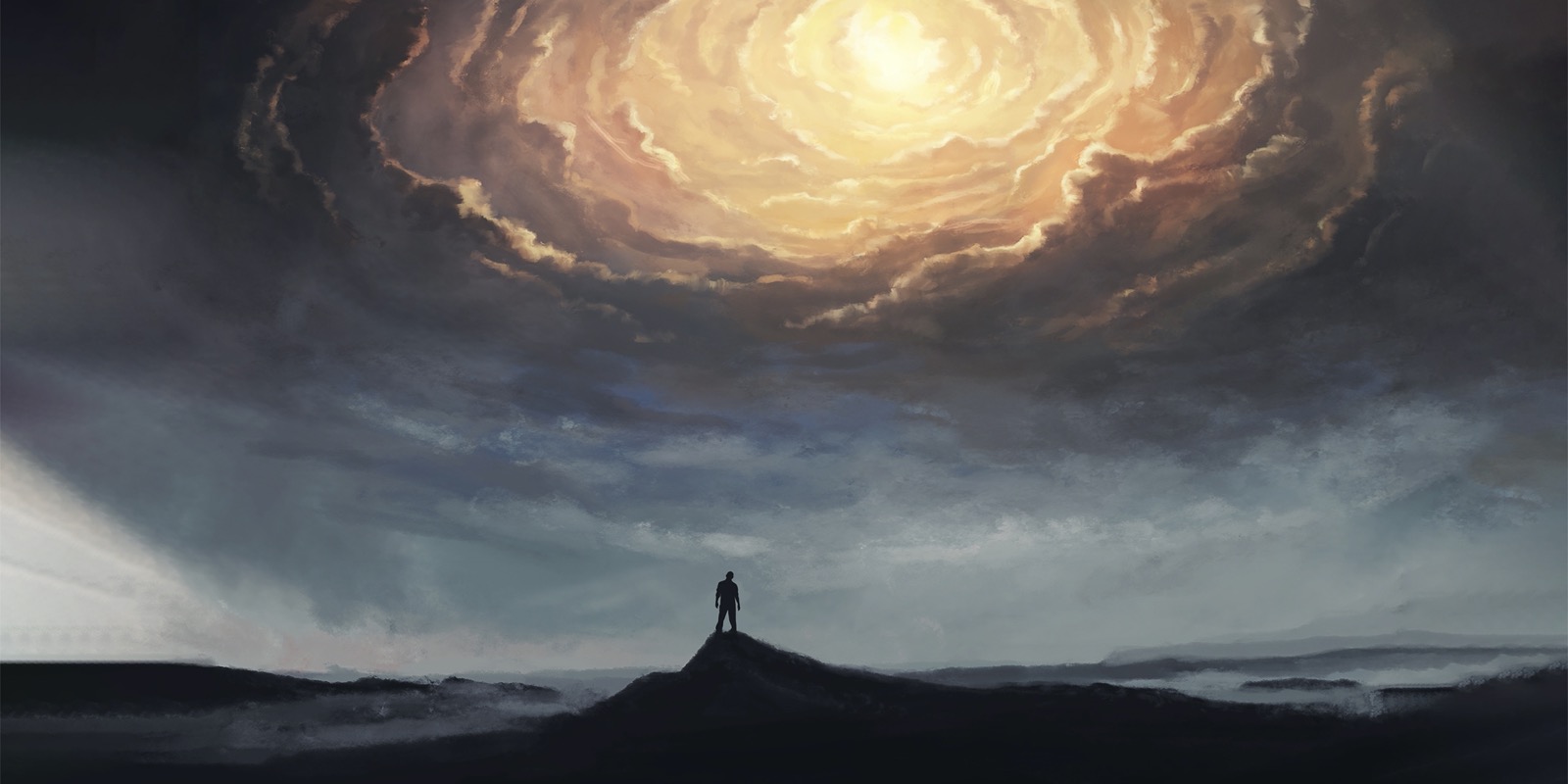Although they are constantly improving their preparedness for crises and disasters, modern societies find themselves powerless in the face of a growing threat: transnational crises.
Here are four brief examples: (1) In 2002, the SARS virus left China and, through Hong Kong, entered 37 countries, eventually causing a major health crisis in Toronto, Canada; (2) In 2008, the US investment bank Bear Stearns went bankrupt, collapsing the US and European economies (especially affecting Portugal, Ireland, Spain and Greece); (3) In 2010, a volcano in Iceland, with a name difficult to pronounce in other languages (Eyjafjallajökull), violently erupted, paralysing international air traffic, leaving tens of thousands of passengers stranded at numerous airports; (4) Since 2015, coming through Turkey, many hundreds of thousands of immigrants have entered Europe, from Greece to Sweden, causing political and humanitarian crises almost everywhere along the way. The range of reactions of the various governments involved has been mixed. The solution suggested by some specialists seems to be good internal training and cooperation between states.[1]
Now close your eyes and remember how we sat at the December holiday table and thought, “The holidays are so short,” and “It feels so good to be at home”. Nobody imagined that in two and a half months we would be staying home for days on end. Without knocking on any door, the new virus has visited and over-stayed its welcome on all the continents except Antarctica.[2]
Europe, which, strategically, seemed most ready for virus combat, is the continent with the second highest number of cases. The Official Journal of the European Union published in its November 15, 2013 edition a piece of legislation containing several decisions by Parliament and the European Commission on serious threats to transnational health.
The document (see Articles 10-11) stipulates, among other things, that the optimal response to such threats has three components: monitoring or state of alert, the proper functioning of critical sectors of society (energy, transport, communications, civil protection and health) and cooperation between the states of the Union. Although these are well-formulated strategies, their implementation in the actual situations produced by the novel coronavirus is not as convincing. Life keeps teaching us that after a crisis passes, we breathe a sigh of relief, draw the line, gather lessons and hope that next time we will act better, more effectively.
I am sure that at least a few times in your life you have experienced having second thoughts, or, as the Englishman says, “If I had known then what I know now…”. Usually, these second thoughts arise soon enough for us to learn our lesson and act better next time. But what will the great End, as the end of the world is sometimes called, be like? What would it be like to have the experience of one final second thought? When there is no time left to straighten out what is crooked? I have a possible solution: to travel in time, to the end of history and see what will happen, thus allowing us to have that afterthought right now. Scripture gives us the opportunity to make this leap into the future. Jesus stated, “These things have I spoken unto you now, before it should come to pass, that, when it is come to pass, ye might believe” (John 14:29).
End times
Since the final hour of the planet is not revealed to us (Matthew 24:36), Scripture is full of the exhortation “Watch!” Of the 22 occurrences of the verb “to watch” in the New Testament, half appear in an eschatological context.[3]
It is clear that a state of alert is crucial in the context of final events. But beware: the vigilance of Scripture does not refer to being aware of all the news or having a well-stocked pantry. Not that these precautions would be bad, but the vigilance to which we are called is much more than that. It is an alertness that goes in three directions.
To discover them, I invite you to read Mark 13:33-37: “Take heed, watch and pray; for you do not know when the time is. It is like a man going to a far country, who left his house and gave authority to his servants, and to each his work, and commanded the doorkeeper to watch. Watch therefore, for you do not know when the master of the house is coming—in the evening, at midnight, at the crowing of the rooster, or in the morning—lest, coming suddenly, he find you sleeping. And what I say to you, I say to all: Watch!”
The regular Bible reader knows that the first three gospels of the New Testament are somewhat parallel and that there is correspondence between them. The passage above is parallel to Matthew 25, which contains three of Christ’s parables, corresponding to the three directions of Mark’s vigil. We will observe these relationships along the way.
Watchfulness in prayer
The first is watchfulness in prayer. This combination (watching + prayer) tells us that watchfulness is primarily spiritual. Often, people look for God after a crisis begins. The Bible asks us to seek Him first. For what else is prayer but our access to the world and to the presence of God? The end of the world should find us already regularly accessing this divine presence. In his book The Citadel, Antoine de Saint-Exupéry wrote: “The gods you do not pray to every night are false gods.”[4]
I do not know when we will understand that a connection with the Supreme Being at the level of the mind creates a supreme state of well-being. Jesus said it simply, “I am the vine, you are the branches. […] without Me you can do nothing” (John 15:5).
I do not know when we will understand that a connection with the Supreme Being at the level of the mind creates a supreme state of well-being. Jesus said it simply, “I am the vine, you are the branches. […] without Me you can do nothing” (John 15:5). This inseparable relationship between the branch and the vine lies behind these other words of Jesus: “I have come that they may have life, and that they may have it more abundantly” (John 10:10). This abundance refers to a higher life, fulfilled because of the connection with God.
In the context of chapter 10 of John, Jesus speaks of His life which, being given for sinners, adds and creates abundance and fulfilment to the biological life. What could be more beautiful than for the redeemed to develop a friendship with a God who paid with His life for them?
By the way, in its original language (Greek) the term parousia, meaning the second coming of Christ, means both coming and presence.[5]
The best preparation for the coming of Jesus is the regular search for His presence. We accomplish this by praying and reading the Scriptures carefully. If we engage in such things, the One who comes will be a friend, not a stranger.
Many times, Jesus rebukes those who are denied salvation, saying that He does not know them (Matthew 25:12; Luke 13:25,27). This is the result of no friendship having been built between them and God. Before the state of emergency and the lockdown many of us used our busyness as an excuse for not taking the time to pray, to read Scripture—in a word, for not building our friendship with God. How are things now, when many of us have been home for weeks? Has anything changed?
Sometimes we are so pragmatic that if we do not see an immediate and measurable benefit of praying and reading the Bible, we conclude that they are not necessary. But this is where the “second thought” is nurtured.
In the parable of the ten virgins in Matthew 25:1-13 we read that the difference between the wise and the unwise virgins was one of caution.[6] All the virgins waited for the groom to come to accompany him on the evening journey with lamplight. But because the bridegroom was late, they all fell asleep, and their lamps burned until they went out.[7] At midnight the bridegroom arrived, and the virgins had to light their lamps again. The unwise ones realised too late that they had no spare oil. They rushed to buy some, but in the meantime the bridal procession passed, and when the virgins arrived and knocked at the gate, the groom replied that he did not know them. The “second thought” is useless at the end of time. The time to surround ourselves with God’s presence and friendship is now, not then.
Sometimes we are so pragmatic that if we do not see an immediate and measurable benefit of praying and reading the Bible, we conclude that they are not necessary.
Watchfulness as a duty
The second form of watchfulness is through the fulfilment of duty. “It is like a man going to a far country, who left his house and gave authority to his servants, and to each his work, and commanded the doorkeeper to watch” (Mark 13:34). This kind of watchfulness through work, if you will, is very well reflected in the parable of the talents in Matthew 25:14-30, which follows the parable of the ten virgins.
In short, the parable of the talents presents a landowner who, before leaving for another land, entrusts his wealth to some servants. Each servant receives a different sum of capital (one five talents, another two talents, and the last one, one talent), with the obligation to develop the received capital. The parable tells us that the first two servants doubled the talents they received, while the last one buried his, which is why he eventually got fired. The characters and actions are symbolic. The master/owner is God, the servants are representative of types of people, the talents are the gifts of one kind or another that we all receive, and the rejection of the one who hid his talent represents the refusal of salvation at the Last Day.
There are several lessons to be learned from this story: (1) God’s work has something to gain from human talents and gifts. Too often, however, people use their given talents exclusively for themselves. (2) Your idea of God determines how you will fulfil your duty.[8] The one who hid his talent said: “Lord, I knew you to be a hard man, reaping where you have not sown, and gathering where you have not scattered seed. And I was afraid, and went and hid your talent in the ground. Look, there you have what is yours” (Matthew 25: 24-25). I dare to ask, dear reader, how do you see God? Is He a harsh and unreasonable Master, or a rich man who does not want any of his investments to go to waste? (3) Do you know what is unfortunate? That when we are disoriented and do not know what to do in life, we’d rather attend a free personal development class than to seek God’s counsel in prayer and Scripture. Maybe it’s not too late to do otherwise.
Watching like a guard
The third form of watchfulness is the vigilance of the gatekeeper, which can be likened to the alertness of the bodyguard. Here I refer to taking care of others, because the bodyguard does not consider himself when he is on alert. This type of watchfulness is found in the third parable of Matthew 25—the parable of the future judgement. The picture is simple: at the final judgement, what will matter will be the good you have done to others (Matthew 25:31-46). Although the parable does say it in so many words, we sense that this inclination toward helping others who are in trouble is fuelled by love for the Master[9], for the divine Judge says that when we do (or don’t do) good to others, we do (or don’t do) it unto Him. The inspiration that should drive us from selfishness to selflessness is the sacrifice of Christ.[10]When we see how much we’ve received we cannot be indifferent to the needs of others.
In this sense, the apostle Paul declares, “He died for all, that those who live should live no longer for themselves, but for Him who died for them and rose again” (2 Corinthians 5:15). If the death of Christ matters to us only as much as an Easter meal, then, I must say, it is too little! Living for yourself is not living! The lost in the parable would have loved to be able to turn back time and give a helping hand to the hungry and thirsty, the sick or the imprisoned. But having second thought on Doomsday is useless. Now is the time to be selfless. Mankind is indebted for all the good that God has offered.
Conclusion
In the end, I would like to leave you with a story told by the French novelist Honoré de Balzac (1799-1850).[11] It is about a Parisian surgeon from around 1830, named Desplein, who declares himself an atheist. One day, Horace, one of the medical students studying at Desplein’s hospital, sees the surgeon entering a church, attending the service, and giving some offerings. That evening, the two have dinner together. During dessert, Horace asks Desplein what he thinks of the Catholic service. The surgeon answers dryly: it is a farce, a papal invention that the Albigensians refused to acknowledge. Horace rightly wondered: where was the morning worshipper?
At first he thought it was a coincidence, but the following year he sees the same atheist surgeon attending the service again. After leaving, Horace talks to the priest from whom he learns that Desplein has been to church four times a year for at least 20 years. After seven years, he finally has the opportunity to find out the explanation. In a word, the reason for attending church was faith. But this faith, which had taken root in the atheist’s heart, had a story behind it.
Dr. Desplein recounts how he went through his student years in poverty. He lacked food (most days he ate only breakfast—old bread, because it was cheaper, with milk), drink (he drank only water), clothes, shoes, money for taxes and books, money for rent and friends, or family. One evening, when he was returning from school, a neighbour told him that his landlord was going to evict him the next day because of his rent debts. He didn’t even have money to leave, let alone stay. But in the morning, his neighbour, Bourgeat, a carter who made his living carrying water through Paris, offered to go with him (he too was being evicted because of his occupation). Out of his poverty, this Bourgeat had saved some money, little by little, over the previous 20 years. He had planned to buy a barrel on wheels and a horse, hoping to end his days of carrying water on his back. And now, when he could fulfil this dream, he put the money on the table and told the future surgeon that he should use it to pay all his living expenses, food and tuition.
This deed and the constant care that was shown to him pierced Desplein’s icy heart. One day, his benefactor died. He had no friends and no family, and so the only thing Desplein could do for him was to honour his faith. The Parisian atheist was an atheist of the façade religion; he didn’t believe in that. But he believed in self-sacrificing love. Balzac was right when he said, “The end ennobles every deed.”
Let’s not forget that the second thoughts do not matter on Doomsday. What will matter then is going to be how much we have sought God before, how well we have fulfilled our duty to Him, and how much we have returned the good that has been done to us.
Laurenţiu-Florentin Moţ, PhD, is associate professor and rector of Adventus University.



















